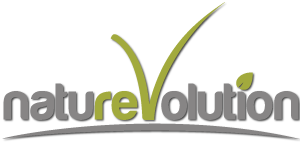This page is dedicated to our local ecotourism development initiatives. Click here for information about our ecovolunteer missions in Madagascar and Indonesia.
Our dream is for ecotourism to be a tool for preserving nature rather than degrading it. The objective of our efforts to develop ecological and responsible tourism in the natural areas we are working to protect is to provide alternative income to activities that are harmful to nature, such as bush fires, poaching and illegal fishing.
This income should help to finance some of the actions needed to protect natural areas, but should also directly improve the living conditions of local communities, so that they can benefit from the preservation of their environment.

In the Makay massif in Madagascar, we promote low environmental impact ecotourism based on hiking. A system of entrance fees provides equal funding for the protection of the massif, projects to benefit local communities and improvements to the quality of the ecotourism on offer.
At the same time, we support travel agencies wishing to offer the Makay in their catalogues by organising educational tours, helping to design tours and putting people in touch with local guides and cooks, raising awareness of the need to respect a charter of best practices based on Leave No Trace principles, etc.
Achievements 2012-2020
- 2012-2016: Naturevolution ecovolunteer missions in the Makay and regular consultations with tourism operators. Efforts to promote the Makay destination in France (articles, films, social networks, conferences, exhibitions, etc.).
- 2017: launch of the Makay Protected Area website and creation of a charter of good behaviour for ecotourists and tour operators.
- 2018: harmonisation of portage and guiding rates in the various villages and introduction of entrance fees to the protected area on 1 June.
- 2019: improvement of the Sakoazato and Tsiazorambo tracks in the North Makay. Liaison offices have been opened at the two main entrances to the massif (Malaimbandy and Beroroha), which are key points of entry for all visitors to the massif.
- 2020: Interruption of ecotourism in the Makay due to Covid-19. 24000€ raised in France to make up for the lack of income usually generated by ecotourism, 100% of which will be donated in the form of food and medical aid to 100 villages around Makay in September and October 2020. Promotion of the Makay during exhibitions at the Musée des Confluences (the second largest museum in France, in Lyon) and at the Musée du Havre.
- 2021: Tourism still at a near standstill in the Makay due to the closure of the borders. Maintaining contact with the very few operators who have brought customers to 2021 (around 10-20 people). Presentation and awareness-raising workshop for tourism operators in the Menabe (northern Makay region) in Morondava in November 2021.
Upcoming projects
- Set up light or even removable reception facilities for customers looking for more “comfortable” conditions
- Creating mandatory camping areas
- Set up a system for managing firewood and cooking wood in the camps to avoid excessive tree felling
- Set up a waste management system for tourist circuits
- Define educational circuits and paths, taking into account the constraints of the areas to be protected
- Put up information panels in the villages where the treks start and in the camping areas
- Produce a comprehensive guide to the biodiversity of the Makay for Makay guides and eco-guards and a more concise booklet for tourists
- Sustainably improve the condition of access tracks to villages, starting points for tours
- Develop racks to facilitate the work of carriers
- Organise various training courses for guides (first aid, biodiversity, French/English language, group management, rope techniques, etc.).
- Organise training courses for cooks
In Matarape Bay on the island of Sulawesi in Indonesia, we have begun a dialogue with a number of local tourist guides and provincial government agencies with a view to protecting the area’s natural riches and developing ecotourism around the bay’s local communities.


